UP TO THE MINUTE
What to Look for in Onsite Rollforming Equipment
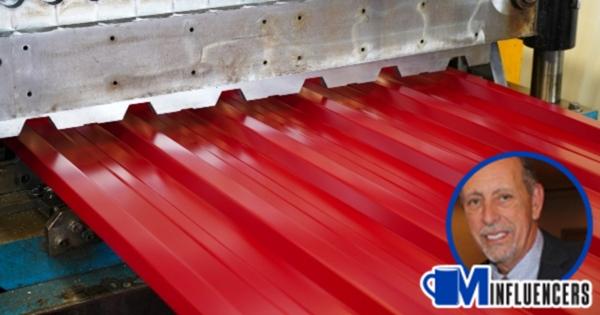
Dale Nelson explains what features and capabilities you should consider when looking to buy a rollforming machine.
Editor’s note: The following consists of a conversation between MCS editor Karen Edwards and Dale Nelson, President of Roof Hugger. You can listen to the podcast or read the transcript below.
Karen Edwards: Hello everyone. Welcome to Metal Coffee Shop Influencers Conversations Today. I'm Karen Edwards and Dale Nelson from Roof Hugger is joining me today and we're going to talk about roll forming machines.
Karen Edwards: Welcome.
Dale Nelson: Yeah, thank you Karen. I appreciate it. One of the things I like to really tout when I get an opportunity is onsite roll forming equipment, where you're talking about the varying types of metal forming machines and things that are out there. Onset roll forming equipment is one of my favorite one, actually, one I have the most experience with because I used to own one back when I was in the contracting part of the business. I think what's important to know about them, it is the types of machines that are out there, the usage for those machines, and when you're looking at one or if you're looking at one, a few details. If I could kind of expand on that a little bit.
Karen Edwards: Yes please. Because the popularity, metal is growing in popularity and so a lot of contractors that are getting into metal may be considering getting a machine. What are some of the things that they need to be thinking about?
Dale Nelson: There's two basic types of onsite roll forming machines out there. One of them is for residential roof panels and residential roof panels typically have rib spacings for maybe 12 to 16 inches. But the rib height that these machines create is usually only about one inch to inch and a half, a relatively low rib. These panels are specifically designed for high slope roofs, usually 312 and up. They're what they call hydrokinetic, which means they're water shedding. They're not waterproof. I don't want to get too gory with the details here.
Basically they're not designed for structural applications like commercial or industrial projects that use a different kind of machine that has a taller rib. And they may be from two inch tall to three inch tall, depending on the panel they create. And the pans will be typically from 16 to 24 inches wide. These panels are designed to be stronger, however, and that'll span from open framing member to open framing member. It might be a bar joist, it might be a metal building pearl in or some other structural member. They can span without support. The residential panels cannot. They have to have a deck or a bearing service of some kind that they rely on for their strengthening component.
Karen Edwards: Okay so-
Dale Nelson: When you're looking-
Karen Edwards: ... whether they're doing residential work or more commercial work is going to be something to really think about when looking at the different types of machines.
Dale Nelson: Where's the market for you? What are you most experienced in? What avenue do you want to pursue? The residential market of late has really been exploding for metal. And of course we're in Florida here and it is the metal roofs that have been surviving some of these outrageous events we've had with high wind speeds, 140, 150 mile an hour winds and doing very well at it. If you look at some of the pictures from Fort Myers recently, you'll see that those buildings that are still there and still survive, predominantly had metal roofs on it.
Karen Edwards: Metal roofs, yeah.
Dale Nelson: They stand up extremely well, a really great product. Same in the commercial and industrial area. They're just terrific. And one of the really nice things about onsite roll forming panels is that they can go from the eave of the building, all the way... Or I guess the eaves down here, the eave of the building to the ridge all the way up here with a single panel. One of the cool things about metal panels, if you don't put a hole in it, it can't leak. There's no way. If you have full length eave to ridge panels, which onsite roll formers can do because they have no limit to the length you can run, they really give you a great water tight product [inaudible 00:05:15].
One of the things I would think, well I got a handful of things I think ought to be considered when you're looking at machine stuff, whether they're residential or commercial, make that decision, is what gauge is a panel. A common standing scene, roof panel will be 24 gauge. Some of them can roll 26 gauge, some of them can roll as heavy as 22 gauge. Find out what the capabilities of the machine are. Will it only roll one gauge or can it roll multiple thicknesses of material? And when you roll a panel, basically you start with a pre-painted or a galvalume coil and it's just a flat coil of metal and you just mount that on the machine, find out what the capacity of the machine is in terms of the carrying weight of the coil you can put on it.
The length or the number of panels you'll get out of a coil, it will be determined by obviously the weight of it. The heavier the coil it can tolerate, the more panels you can run at one time without having to change coil. All of them will have a different capacity and a different rating and the manufacturers can guide you on that. There's also gas powered, diesel powered and electric powered roll formers. Check with the manufacturer, what kind of applications you're going to be using. You're going to be more remote job site rolling or you're going to be more in town, so that'll help you with that. And then find out what kind of support the manufacturer provides in terms of the basic warranty of the equipment, how available are replacement parts, the rollers that form the panels do wear out after a while, I've had to replace ours. And are they ready and able to provide those replacement parts as needed.
The other, and I think is probably the most important part is the panel testing. Every metal panel has to be tested to a certain criteria and there's something called an E1592 test, and that gives you the strength of the panel in the application you're going to use it in, either residential roofing or commercial roofing. But these test values are critical. There's a UL 90 test, an E1592, Factory Mutual has a 4472 or something like that. You need that test data because that gives you the parameters of use for your panels.
It'll also specify the gauge of the panel and the clip that was used when the panel was tested. You'll be married to that assembly once you get this machine because if you vary from that, now you become the manufacturer. You're responsible for using maybe a foreign coil or an off brand coil or an off brand clip that the product was not tested with and you could end up being responsible in the event of a failure. You want to find out what the product was tested with, how it was tested, and what the values are for that. And if you're going to be doing military work, of course you're going to be wanting to use US materials and all that kind of stuff.
Karen Edwards: Absolutely. Wow. There's a lot of thought that really goes into this. It's not so much of, let me just go out and buy a machine.
Dale Nelson: No. And I think people get lured into thinking, "Well now I can buy any coil I want and put it on there and I can make some extra dough doing this, that and the other thing." But if you vary from these test criterias, you could end up being the manufacturer and completely responsible for the engineering design. And you may not have any test with that clip you got on sale or that coil you got on sale and that can be a huge liability.
Karen Edwards: Good points. Yeah, all very good points.
Dale Nelson: Yeah. And then there's a number of accessories that come of that. Some of them have automatic cutoff shears on them. In low slope roofing or commercial roofing, typically a mastic sealant to supply to the edge laps or the side laps of the panel. You can put that on by hand or the machine will actually install it automatically for you. There are a number of accessories that come with these machines. Ask a lot of questions, try to understand where you see your business going, what's going to be best for your business. And then you can evaluate the cost of the machine, how often you're going to run it, and what the payback period's going to be, so you get your money back. Hopefully you get it back quickly, and then it all starts flowing to the bottom line of your company. And I think that's about the extent of my wisdom, I think.
Karen Edwards: Nom, that is great advice, Dale. Thank you for sharing because there are a lot of things to consider and a lot of things to think about and hopefully you've been able to help somebody out there who is looking to do that. I think the industry trade shows are a great place to see some of the equipment manufacturers and see the machines in action and learn more about it.
Dale Nelson: Yeah, I know Metal Con had probably at least four different onset roll form guys. I know there's an actual role forming show where they specifically tout and promote onsite roll forming equipment. I have seen some of these onsite roll formers actually installed in production facilities where they just mount the machine inside a building and they run the panels as if they're just factory machines. And certainly you can do that. The only difference is a factory mounted machine will have the limitations of length because you can only haul so much length over the road. Practical length of maybe 50 feet might be the maximum you can haul over the road.
Karen Edwards: That's one reason people like onsite, right?
Dale Nelson: Exactly-
Karen Edwards: Because they're not limited-
Dale Nelson: 100 foot length panels. We did one down years ago in St. Croix and the Virgin Islands that had 115 foot length of panel. That was really outstanding and no end lapse and it just gives you a fantastic finished product when you're done with it.
Karen Edwards: Yeah, very nice. Awesome. Well Dale, thank you very much for sharing your wisdom and for your time today. And we'll get this published up on Metal Coffee Shop and hopefully help a few folks out.
Dale Nelson: Well, always a pleasure, Karen. Thank you for giving us an opportunity to talk about it.
Karen Edwards: All right, take care.
Dale Nelson: [inaudible 00:13:05] very popular in the retrofit business, we love these guys.
Karen Edwards: Oh, well thanks Dale. We'll see you next time.
Dale Nelson: All right. Excellent. Take care.
Dale Nelson is the President at Roof Hugger. See his full bio here.


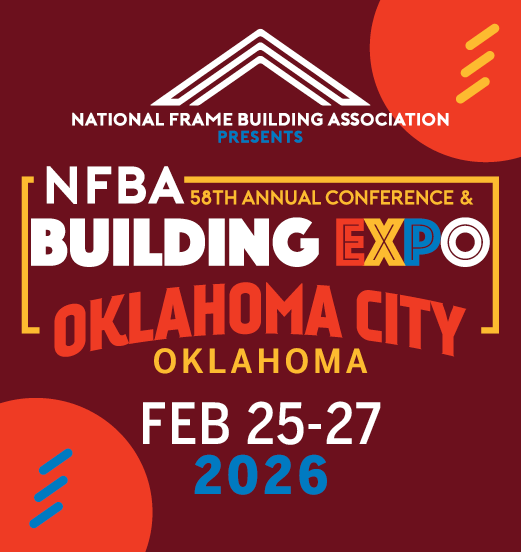


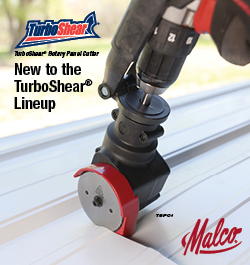






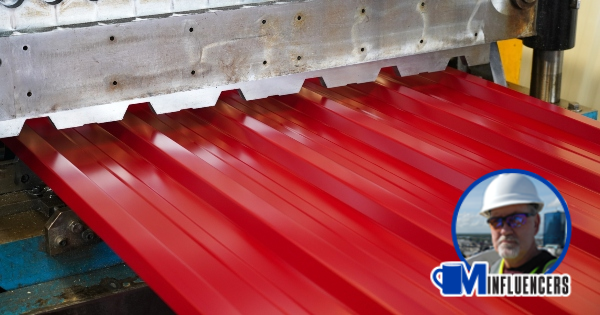
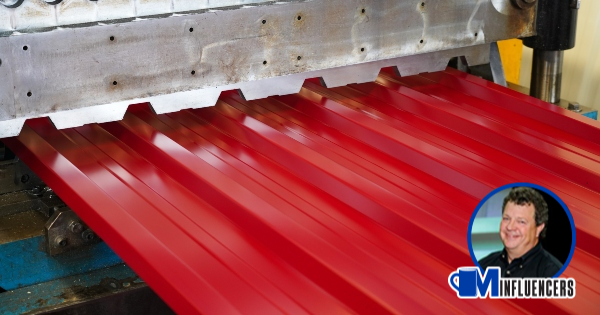
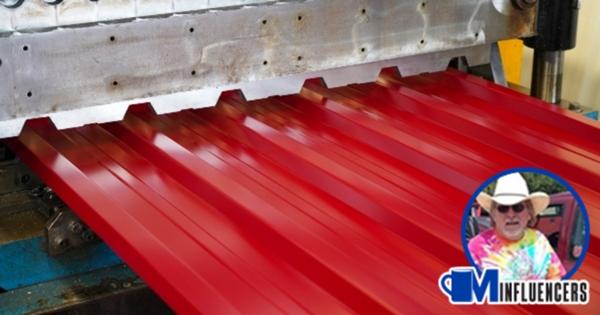


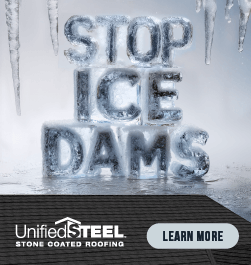

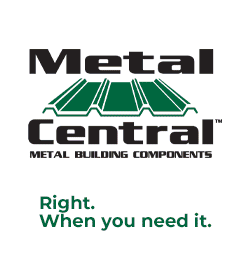

Comments
Leave a Reply
Have an account? Login to leave a comment!
Sign In